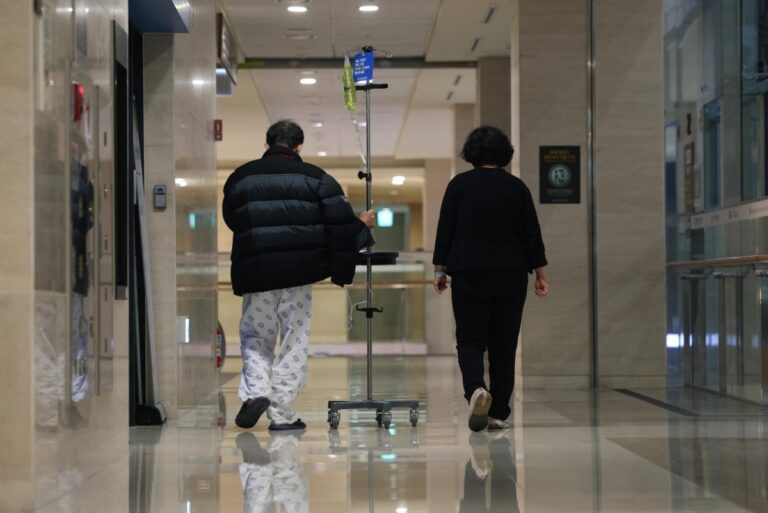South Korea on Friday raised its emergency health crisis level to “severe” as a strike by thousands of medical trainees enters its fourth day. According to Seoul's Ministry of Health, hospitals have been forced to postpone or cancel surgeries.Photo provided by: Yonhap
SEOUL, Feb. 23 (UPI) — South Korea's government on Friday raised its health crisis alert to the highest level, “severe,” after thousands of doctors missed work for a fourth day in protests over medical school admissions.
According to the Seoul Ministry of Health, as of Thursday night, about 7,863 trainees at 94 major hospitals, or nearly 70% of all trainees, had quit their training, disrupting patient care and causing delays and cancellations of surgeries. ing.
advertisement
Most of our residents work in 100 teaching hospitals across the country, playing key roles in supporting surgeries and emergency services.
At Friday's emergency disaster response meeting, government officials announced they would extend public hospital hours, hire additional temporary medical staff and enable all hospitals and clinics to offer telehealth services.
Prime Minister Han Deok-soo said at the conference, “Collective actions that threaten the lives and health of the people cannot be justified for any reason.'' “We must urgently stabilize the situation through a whole-of-government response and minimize the damage to our people,” he said.
Trainee doctors went on strike on Tuesday to protest against government plans announced earlier this month to admit 2,000 new students into next year's medical school slots. This will be a significant increase from the current total capacity of just over 3,000 people.
Health officials said the move was necessary to address a shortage of doctors in critical medical fields and in remote areas.
The number of doctors in South Korea is 2.6 per 1,000 people, which is significantly lower than the average of 3.7 doctors per 1,000 people in Organization for Economic Co-operation and Development member countries.
South Korea's Ministry of Health claims that without changes to the system, the rapidly aging country will face a shortage of 15,000 medical professionals in 2035.
However, doctors argue that raising the admission quota will reduce the quality of medical education. Residents and trainees also say the government should focus on improving working conditions and increasing salaries in low-wage fields such as pediatrics and emergency medicine.
Lee Pil-soo, president of the Korean Medical Association, said earlier this month, “Despite repeated proposals from the medical community, the government is proceeding with its own policy measures without sufficient discussion or consultation.''
The KMA, the main lobbying group for doctors, announced plans to hold large rallies in Seoul on the next two Sundays, according to the Prime Minister's Office.
Doctors have so far been unable to win support from many people. In a poll released by Gallup Korea last week, 76% of respondents supported expanding medical school capacity, while only 16% opposed it.


